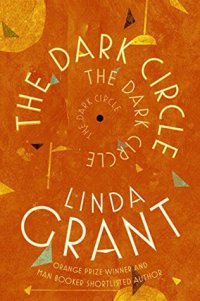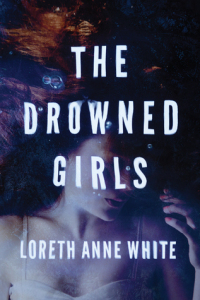Impressions, if you remember are the collections of passages from books and papers that I have read over time. These passages are such that they leave a mark and make up a significant contribution to the impression a book ultimately has, like a quality of a person which you like more than all other qualities. More such impressions can be read here and here.

From Istanbul by Orhan Pamuk
To see the city in black and white is to see it through the tarnish of history: the patina of what is old and faded and no longer matters to the rest of the world. Even the greatest Ottoman architecture has a humble simplicity that suggests an end-of-empire gloom, a pained submission to the diminishing European gaze and to an ancient poverty that must be endured like an incurable disease. It is resignation that nourishes Istanbul’s inward-looking soul. To see the city in black and white, to see the haze that sits over it ad breathe in the melancholy its inhabitants have embraced as their common fate, you need only to fly in from a rich western city and head straight to the crowded streets; if it’s winter, every man on the Galata Bridge will be wearing the same pale, drab, shadowy clothes. The Istanbullus of my era have shunned the vibrant reds, greens and oranges of their rich, proud ancestors; to foreign visitors, it looks as if they have done so deliberately, to make a moral point. They have not – but there is in their dense gloom a suggestion of modesty. This is how you dressed in a black-and-white city, they seem to be saying; this is how you grieve for a city that has been in decline for a hundred and fifty years.
.
From The Hildebrand Rarity by Ian Fleming
James Bond nodded amiably. ‘I’ve got no objection. She’s your ship’. ‘It’s my ship,’ corrected Mr Krest. ‘That’s another bit of damned nonsense, making a hunk of steel and wood a female. Anyway, let’s go. You don’t need to mind your head. Everything’s a six-foot-two clearance.’ Bond followed the narrow passage that ran the length of the ship, and for half an hour made appropriate comments on what was certainly the finest and most luxuriously designed yacht he had ever seen. In every detail, the margin was for extra comfort. Even the crew’s bath and shower was full size, and the stainless steel galley, or kitchen as Mr Krest called it, was as big as the Krest stateroom. Mr Krest opened the door of the latter without knocking. Liz Krest was at the dressing table… The girl hurriedly picked up a compact and made for the door. She gave them both a nervous half-smile and went out. ‘ Vermont birch panelling, Corning glass lamps, Mexican tuft rugs..’ Mr Krest’s catalogue ran smoothly on. But Bond was looking at something else that hung down almost out of sight by the bedside table on what was obviously Mr Krest’s side of the huge double bed. It was a thin whip about three feet long with a leather-thonged handle. It was the tail of a sting-ray. Casually Bond walked over to the side of the bed and picked it up. He ran a finger down its spiny gristle. It hurt his finger even to do that. He said: ‘Where did you pick that up? I was hunting one of these animals this morning.’ ‘Bahrein. The Arabs use them on their wives.’ Mr Krest chuckled easily. ‘Haven’t had to use more than one stroke at a time on Liz so far. Wonderful results. We call it my “Corrector”.’
.
From Politics and the English language by George Orwell
Orthodoxy of whatever colour, seems to demand a lifeless, imitative style. The political dialects to be found in pamphlets, leading articles, manifestos, White papers and the speeches of Under-secretaries do, of course, vary from party to party, but they are all alike in that one almost never finds in them a fresh, vivid, home-made turn of speech. When one watches some tired hack on the platform mechanically repeating familiar phrases – bestial atrocities, iron heel, blood-stained tyranny, free peoples of the world, stand shoulder to shoulders – one often has a curious feeling that one is not watching a live human being but some kind of dummy: a feeling which suddenly becomes stronger at moments when the light catches the speaker’s spectacles and turns them into black discs which seem to have no eyes behind them. And this is not altogether fanciful. A speaker who uses that kind of phraseology has gone some distance towards turning himself into a machine. The appropriate noises are coming out of his larynx, but his brain is not involved as it would be if he were choosing his words for himself. If the speech he is making is one that he is accustomed to make over and over again, he may be almost unconscious of what he is saying, as one is when one utters the responses in church. And this reduced state of consciousness, if not indispensable, is at any rate favourable to political confirmity… Political language is designed to make lies sound truthful and murder respectable, and give an appearance of solidity to pure wind.
.
From A Tale of Two Cities by Charles Dickens
France, less favoured on the whole as to matters spiritual than her sister of the shield and trident, rolled with exceeding smoothness down the hill, making paper money and spending it. Under the guidance of her Christian pastors, she entertained herself, besides, with such humane achievements as sentencing a youth to have his hands cut off, his tongue torn out with pincers, and his body burned alive, because he had not kneeled down in the rain to honour to a dirty procession of monks which passed within his view, at a distance of some fifty or sixty yards. It is likely enough that, rooted in the woods of France and Norway, there were growing trees, when that sufferer was put to death, already marked by the woodman, Fate, to come down and be sawn into boards, to make a certain movable framework with a sack and a knife in it, terrible in history. It is likely enough that in the rough outhouses of some tillers of heavy land adjacent to Paris, there were sheltered from the weather that very day, rude carts, bespattered with rustic mire, snuffed about by pigs, and roosted in by poultry, which the Farmer, Death, had already set apart to be his tumbrils of the Revolution.
.
From Is God an Accident by Paul Bloom
In a significant study the psychologists Jesse Bering, of the University of Arkansas, and David Bjorklund, of Florida Atlantic University, told young children a story about an alligator and a mouse, complete with a series of pictures, that ended in tragedy: “Uh oh! Mr. Alligator sees Brown Mouse and is coming to get him!” [The children were shown a picture of the alligator eating the mouse.] “Well, it looks like Brown Mouse got eaten by Mr. Alligator. Brown Mouse is not alive anymore.” The experimenters asked the children a set of questions about the mouse’s biological functioning—such as “Now that the mouse is no longer alive, will he ever need to go to the bathroom? Do his ears still work? Does his brain still work?”—and about the mouse’s mental functioning, such as “Now that the mouse is no longer alive, is he still hungry? Is he thinking about the alligator? Does he still want to go home?” As predicted, when asked about biological properties, the children appreciated the effects of death: no need for bathroom breaks; the ears don’t work, and neither does the brain. The mouse’s body is gone. But when asked about the psychological properties, more than half the children said that these would continue: the dead mouse can feel hunger, think thoughts, and have desires. The soul survives. And children believe this more than adults do, suggesting that although we have to learn which specific afterlife people in our culture believe in (heaven, reincarnation, a spirit world, and so on), the notion that life after death is possible is not learned at all. It is a by-product of how we naturally think about the world.
.
Advertisements Share this:





